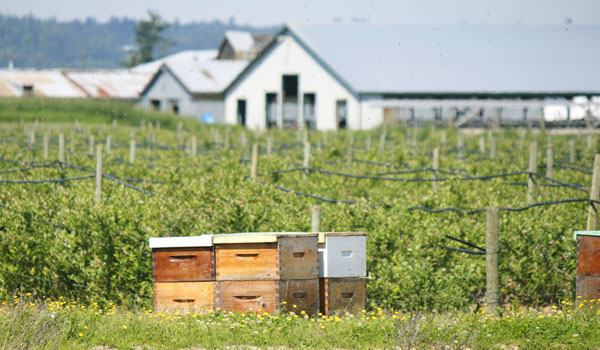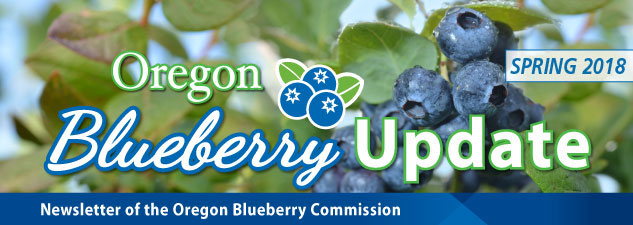
THE IMPORTANCE OF BEE PROTECTION PROTOCOLS
Early in the process of developing statewide pollinator protection protocols, Oregon State University’s Pollinator Health Extension Specialist Andony Melathopoulos discovered it wouldn’t be easy.
“When we sat down and talked with the Oregon Department of Agriculture about a statewide plan, we realized that because there are so many specialty crops in the state, it would be impossible to come up with a protocol for protecting pollinators that was specific enough,” Melathopoulos said.
The working group decided to look south, to perhaps the only state with more crop diversity.
“Early on in the discussions, we looked at California,” he said. “In California they have an industry-led bee protection protocol: The California Almond Board took it upon themselves to develop one.”
The California Almond protocol, which includes best management practices, was hammered out in multiple meetings between almond growers and beekeepers. It serves both to help growers protect pollinators and to drive the pollinator-protection narrative.
“It was a way to compile everything this industry had done and was doing for bees and to make sure it was visible to the public,” Melathopoulos said. “There is a lot of discussion around pollinators and farming. It’s urgent that growers who are doing positive things for bees be more central in those discussions.”
Today, OSU Extension, the Oregon Department of Agriculture and Oregon Department of Forestry are in the process of developing an Oregon Strategic Pollinator Health Plan that will include best management practices, lists of pollinator friendly resources, flagship farms and flagship industries, among other elements.
Concurrently, Melathopoulos is soliciting involvement from different agricultural industries in developing pollinator protection protocols. To date, only one, the specialty seed industry, has done so.
The Specialty Seed Growers of Western Oregon initiated the process by forming a working group consisting of delegates from the specialty seed industry and from the Oregon State Beekeepers Association, Melathopoulos said. OSU Extension and ODA also participated.
By early February of this year, the group had drafted a protocol and was finalizing it as of press deadline for this story. “It wasn’t an endless process,” Melathopoulos said. “It didn’t involve endless meetings.”
The first step, he said, involved creating minimum standards of how strong honey bee colonies needed to be for pollination.
A second step involved specifying when colonies should be moved into a crop. “We agreed in the protocol that moving the colonies in any earlier than ten percent bloom didn’t have any benefit,” he said.
Communication between beekeeper and grower was identified as a crucial element of the protocol. “There was a strong emphasis on communicating with your beekeeper at bloom, so if you are forced to treat at bloom, the beekeeper and the grower can discuss pesticide options.
“It seemed reasonable that 48 hours of notice was acceptable. That would give the beekeeper enough time, if they were across the state, to potentially move the bees out,” he said.
Hive placement was another issue discussed, he said. Beekeepers didn’t want the colonies placed right on the crop and didn’t want colonies placed adjacent to highways, “because bees get hit by passing traffic,” Melathopoulos said.
The group also agreed that it is important to maintain a contract between beekeepers and growers. Melathopoulus added that the group is working on a contract that could be used as a template for other industries.
People interested in keeping abreast of the state’s development of pollinator protection protocols can do so by visiting the Oregon Bee Project website, at www.oregonbeeproject.org. |
